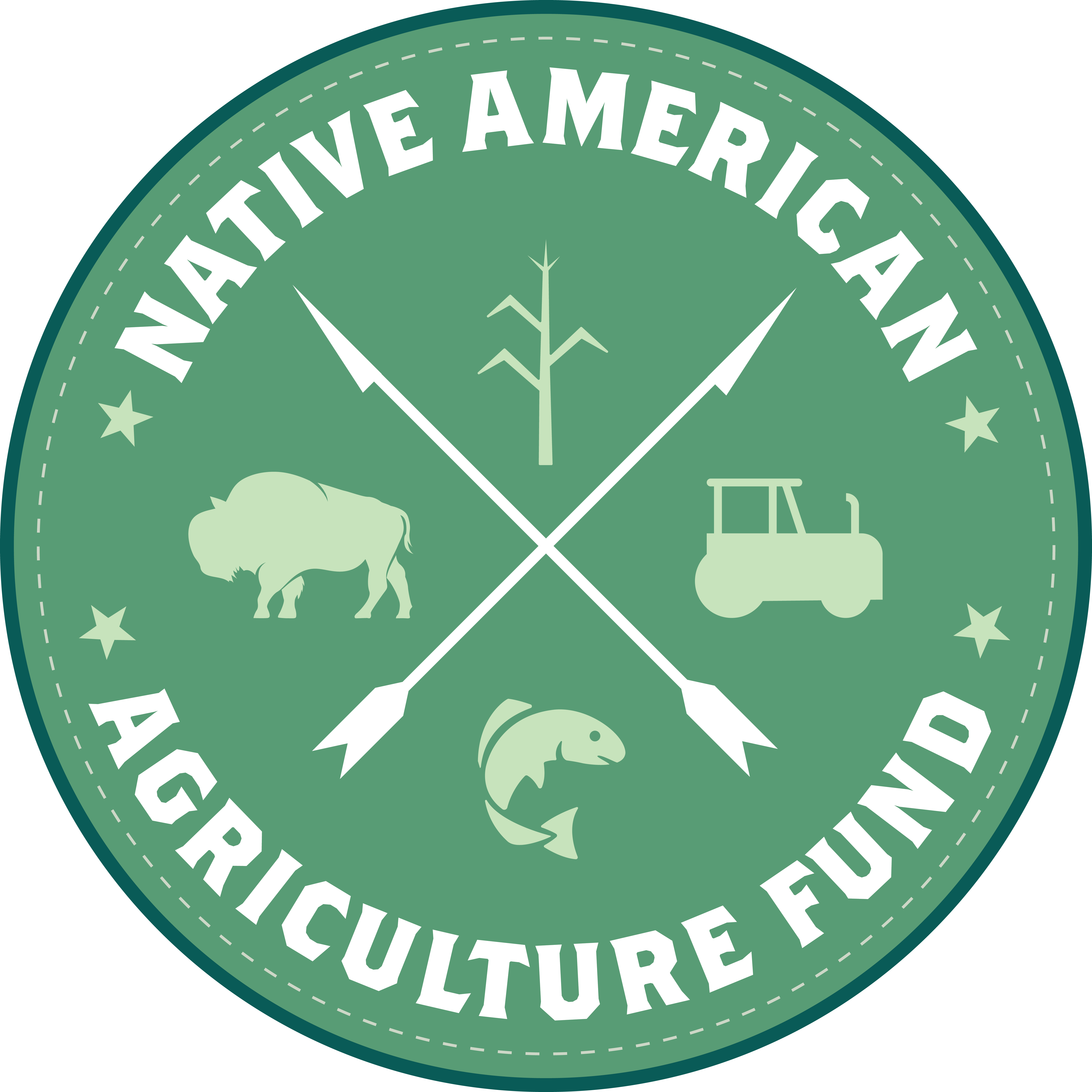About Us
Healthy lands, healthy people, healthy economies
The Native American Agriculture Fund (NAAF) is a private, charitable trust that envisions a future where Native farmers and ranchers thrive and play a crucial role in land stewardship and the Nation’s economic viability. Our mission is to empower Native and rural communities with the knowledge, resources, and support to foster robust agricultural practices, resilience, and economic self-sufficiency. We believe that by investing in Native agriculture, we can strengthen rural America’s infrastructure development and job creation, benefiting everyone.
Strategic Goals:
1. Financial Support: In 2023, the NAAF Board of Trustees set the goal of allocating $100 million over the next decade to support initiatives that bolster Native agricultural operations. Under this plan, $10 million should be distributed every year for ten years through a competitive application process, ensuring that we invest wisely in projects with the highest potential for impact, driving toward NAAF’s mission.
2. Capacity Building: We focus on providing grants to organizations offering comprehensive business assistance and technical training. We want to ensure that Native farmers and ranchers have the tools and knowledge to succeed, fostering innovation and sustainability.
3. Education and Advocacy: We will promote agricultural education and advocacy initiatives that empower Native and rural communities.
Agriculture is woven into the very fabric of America, and for Tribal citizens, it represents a vital aspect of their cultural identity. By honoring the roots of our nation, we commit to advancing agriculture for all Americans and ensuring economic opportunities flourish in Indian Country. Together, we are cultivating a powerful movement that embodies the values of hard work and self-reliance in Native agriculture, mirroring the principles that underpin our country’s greatness.
As we approach the conclusion of NAAF’s journey, we will continue to operate under this philanthropic vision for the coming years.
History of the Native American Agriculture Fund
Keepseagle v. Vilsack
In 1999, the Keepseagle v. Vilsack class-action suit was filed alleging that the United States Department of Agriculture (USDA) had engaged in discrimination against Native American farmers and ranchers in loan programs and servicing of loans dating back to 1981.
In 2010, after more than a decade of litigation, the federal government and the parties agreed to a settlement. The original settlement resulted in the creation of a $680 million compensation fund, another $80 million in debt relief, and tax relief in addition to other forms of programmatic relief to be instituted by USDA. A six-month claims process resulted in approved claims for more than 3,600 Native farmers and ranchers.
As a part of the settlement agreement, a cy pres fund was created. After a significant period of further negotiation, a second compensation payment and additional tax relief to successful claimants was approved and an additional $38 million in “fast track” grants to nonprofit and other eligible organizations that support Native farmers and ranchers was also authorized.
In 2018, the court directed that the remaining funds be distributed through a newly created Native American Agriculture Fund. Having received final approval to begin its work in 2018, the Native American Agriculture Fund must distribute its funds within a period of 20 years. The Native American Agriculture Fund will provide grants to eligible entities for business assistance, agricultural education, technical support, and advocacy services to support Native farmers and ranchers . Eligible entities include 501(c)3 organizations, educational organizations, CDFIs and Native CDFIs, and tribal governments.
